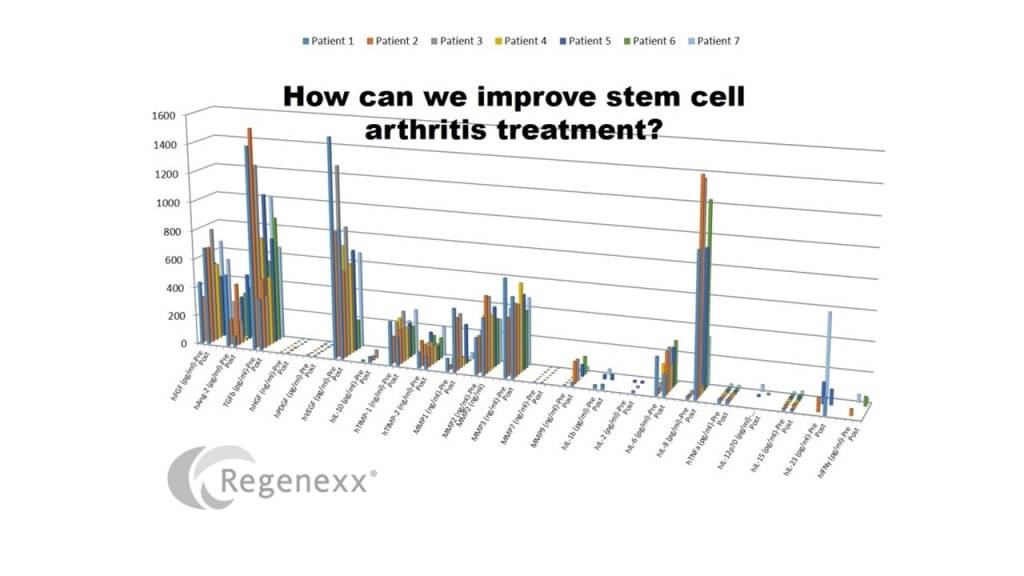Knee Arthritis Stem Cell Research: Can We Improve the Soil?
What are we doing for knee arthritis stem cell research? I remember a while back a book was published that said to get to mastery of a subject you had to do it at least several thousand times. I had only to look at my son as an example, who at that time spent hours a day on our trampoline because he liked it and by the age of 12 could land any flip combination with such ease it was like second nature. At that point, he always sought challenges to up his game. To that end, we’ve been treating knee arthritis patients with their own stem cells longer than anyone in the US. Like my son on the trampoline, once you get to mastery you seek new ways to improve what you do. One of those big projects right now is looking at optimizing the soil.
This project began several years ago when I was out in our garden. I was looking at some plants that had failed over the winter and was thinking that I needed to be a more knowledgeable gardener. Did I know that these plants had enough light, water, and nutrients? I had no idea and thought that in many ways, all arthritis stem cell treatments had the same issue. Some of our patients have good “soil” for our stem cell “seeds”, some have poor soil. Some may need more nutrients for the seeds. All of this began what we call our knee micro-environment project, a huge effort to keep advancing the Regenexx procedure.
Your knee has natural lubricating fluid known as synovial fluid. This is really the “soil” in your knee that can either help your knee arthritis or hurt it. In fact, it can contain many nasty chemicals which act as a toxic witches brew. Our new research allows us to measure 25 cytokines and growth factors in the synovial fluid with as little as a 1/4 of a milliliter (a pea sized amount). We collect that data at the pre-injection (the till the soil part of the procedure) and at the post-injection (the fertilize step). Above is the data from the first 7 patients that were enrolled in the study. You can see the growth factors and cytokines along the bottom of the graph and the levels along the other axis. The first thing that hits you is that this is a ton of data being collected! What do we hope to achieve by looking at this data on hundreds of patients?
- Can we predict who will do well with our specific knee stem cell procedure by looking at levels or patterns of these chemicals in the synovial fluid?
- Can we take non-responders and improve their outcome by making their synovial fluid look more like those patients who respond well?
The upshot? This research is a massive undertaking that will generate a huge amount of data. As I said above, this is because we have reached the level of mastery in stem cell knee arthritis treatments. Our goal is to better understand how to get all patients to respond, even those with “poor soil”. Why don’t you see other stem cell clinics doing this type of research? As I have always said, there’s Regenexx, and there’s everything else!

NOTE: This blog post provides general information to help the reader better understand regenerative medicine, musculoskeletal health, and related subjects. All content provided in this blog, website, or any linked materials, including text, graphics, images, patient profiles, outcomes, and information, are not intended and should not be considered or used as a substitute for medical advice, diagnosis, or treatment. Please always consult with a professional and certified healthcare provider to discuss if a treatment is right for you.

